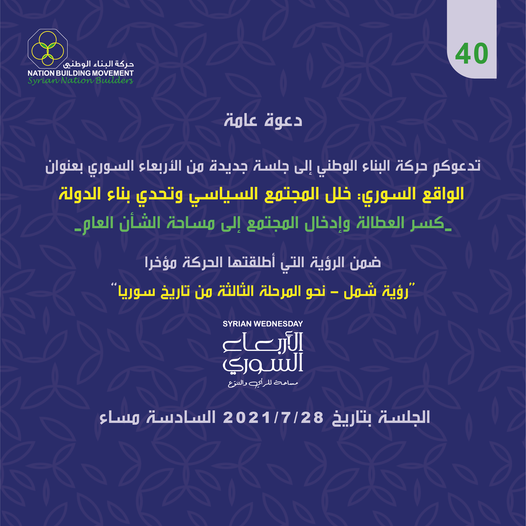
This report was made possible with the participation of 118 Syrian women activists in Badael’s research activities, whose stories and accounts of activism lay at the foundation of this paper. We express our gratitude and appreciation to each of the women activists for their willingness to engage in Badael’s research activities, and the richness of the information they shared with us. Their words, reflections, and self-critiques are at the core of this report. They enabled us to offer the reader access to the contributions made by feminist movements to the construction of a democratic Syria.
The body of the report is divided into four chapters. The first focuses on the characteristics of feminist and women’s movements in Syria. This chapter locates women’s and feminist movements within the context of the Syrian revolution, analyzing women’s struggles within the broader Syrian socio-political context. It documents the various perceptions held by women organizers on women’s rights and feminist movements in Syria, the reasons behind them, and their translation into both common and divergent priorities. The second chapter describes the tactics and strategies of women organizing and the barriers to greater coordination. The third chapter showcases the key gains of these movements, such as feminist knowledge production, personal and professional growth, and the buy-in of more communities in the movements’ operational spaces.
The fourth chapter discusses their key challenges, which primarily include a donor landscape with a low risk-taking appetite; poor understanding of the heterogeneity of the political agency of women organizing; agenda-setting; and a colonial funding lens on gender which has led to the NGO-isation of movements and grassroots organizing.
لقراءة التقرير: https://badael.org/wp-content/uploads/2021/07/Pathways_of_Feminist_Movement_Post-_2011_Syria-1.pdf







أضف تعليق